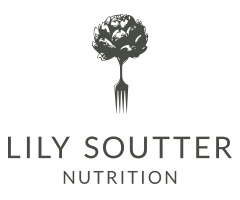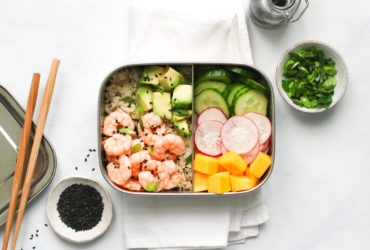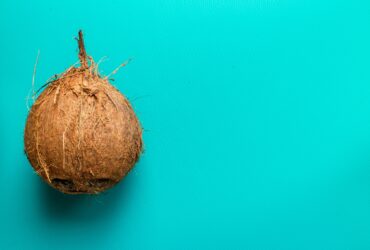With so much conflicting advice around gut health, it can be hard to detangle fact from fiction.
To clear up any confusion, here are the most cited myths:
1. Eating cheese before bedtime gives you nightmares
There is no scientific grounding to support this myth and it really is an old wives tale. In fact, research conducted in 2005 debunked this myth so it really is ok to enjoy the occasional after-dinner cheeseboard. [1]
2. Always go to bed on an empty stomach
Whilst we certainly shouldn’t eat too close to bedtime, for some, going to sleep hungry can also disrupt sleep. If you struggle to sleep, then having a balanced evening meal which contains complex carbohydrates may in fact aid with a more restful night.
3. Food can ‘soak up’ alcohol
Enjoying a kebab after a night out of drinking won’t ‘soak up’ the alcohol you’ve consumed. However, when you eat a meal prior to or alongside to drinking, it slows the rate at which alcohol is absorbed in the small intestine.
4. Stress can cause stomach ulcers
Whilst stress can irritate an ulcer, it is not the cause. Ulcers are instead, a result of an infection with the bacterium H. pylori.
5. Lying down on your right side after eating is better for digestion
It may be tempting to lie down after an evening meal, however for some, this can irritate symptoms of acid reflux and indigestion. This is because sleeping on the right side has been found to relax the connecting muscles between the stomach and oesophagus leading to reflux symptoms.
6. You must chew 20 times before swallowing
Digestion starts in the mouth, so it’s important to chew thoroughly to minimise the risk of choking, but to also aid with optimal digestion. However, there is no scientifically backed number in terms of how many times we must chew our food. This number can vary drastically between the consumption of different types of food, for example, your jaw may need to do more work when chewing steak but this isn’t required when consuming a banana – as you’ll end up with mush!
Chewing helps to slow the process of eating down which may aid with better digestion and gives us time to recognise when we’re full. However, it’s important to note that whether you chew something 5 or 20 times our stomach and small intestine will still continue to go through all of the vascular motions and mechanical digestion. In summary, chew thoroughly but don’t get too hung up on the exact number!
7. You are more likely to overeat if you take lunch at your desk
Mindless eating whilst being distracted by our laptop may lead us to feeling less satiated and as a result, may lead to overeating. However, this isn’t a hard and fast rule for all, overeating can be hugely affected by the context and setting. For example, if we take our lunch break in a place where we are exposed to more indulgent temptations, we may end up eating more than initially planned.
8. Eating a ‘free from’ diet cures all forms of IBS
There is no cure for IBS, and not all sufferers with IBS have food intolerances. For many, stress can be a trigger and despite following a ‘free from diet’, some suffers may still have periods where they have flare-ups.
9. Chewing gum will sit in the stomach for years if ingested
Whilst gum won’t be properly digested by our body, it doesn’t mean that it’s going to sit in our stomach for 7 years! Whilst our stomach can’t break gum down in the same way that it breaks down other food, our digestive system can move it along through normal intestinal activity and it can still be excreted when you have bowel movement.
10. Cooked food is easier on the stomach
Cooking food breaks down the fibres within grains and vegetables which means we can assimilate nutrients more easily. It’s important to note that, overcooking food can lead to a drastic reduction in certain nutrients including water-soluble nutrients such as vitamin C and the B vitamins.
For most of us, we should be able to break down both cooked and raw food absolutely fine as this is part of the normal digestion process.
11. Beans are the most gas inducing food
Beans are rich in fibre and starches called oligosaccharides which are poorly digested and therefore fermented by gut bacteria. A side effect of this fermentation is the production of intestinal gas. However, beans aren’t the only food groups rich in these carbohydrate molecules.
Other foods including raw garlic and onion can be particularly bothersome to some, lentils and wheat-based products such as bread can be an issue for others. Many find that sweeteners such as sorbitol found in chewing gum and xylitol found in protein bars can be triggering.
REFERENCES
1. https://web.archive.org/web/20060115000115/http://www.cheeseboard.co.uk/news.cfm?page_id=240
Lily is a London Nutritionist who graduated from Newcastle University with a BSc (Hons) degree in Food and Human Nutrition (AfN accredited) where she was awarded the Sage Faculty for Excellence Scholarship on an annual basis. She then went on to complete a 2-year post graduate Diploma in Nutritional Therapy and is currently working towards her MSc in Nutritional Medicine (AfN accredited) at the University of Surrey. Lily’s extensive knowledge of the science of food and health, enables her to regularly write for The Times, The Telegraph, The Daily Mail, The Independent, Women’s Health and Cosmopolitan.
Her frequent TV appearances include ITV’s This Morning with Holly Willoughby and Phillip Schofield, and ITV’s primetime series Save Money: Lose Weight with Dr Ranj Singh. Lily’s passion is to simplify the science around nutrition, to provide health hacks and smarter eating strategies to empower people to enjoy a healthy and successful lifestyle. Her specialities lie in workplace wellness, implementing nutrition focused wellbeing programmes within corporate organisations across the UK.
Lily also sees individual clients from her clinic in Chelsea and a private medical practice based in Notting Hill.



